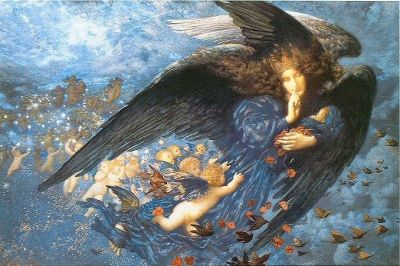You, Reader - Billy Collins
I wonder how you are going to feel
when you find out
that I wrote this instead of you.
that it was I who got up early
to sit in the kitchen
and mention with a pen
the rain-soaked windows,
the ivy wallpaper,
and the goldfish circling in its bowl
Go ahead and turn aside,
bite your lip and tear out the page,
but, listen -- it was just a matter of time
before one of us happened
to notice the unlit candles
and the clock humming on the wall.
Plus, nothing happened that morning--
a song on the radio,
a car whistling along the road outside--
and I was only thinking
about the shakers of salt and pepper
that were standing side by side on a place mat.
I wondered if they had become friends
after all these years
or if they were still strangers to one another
like you and I
who manage to be known and unknown
to each other at the same time --
me at this table with a bowl of pears,
you leaning in a doorway somewhere
near some blue hydrangeas, reading this.














 tickled by this bit, when I read it for the first time aged about 15. I think I was going through a difficult phase where getting out of bed, showered and dressed in the morning would feel completely beyond me.
tickled by this bit, when I read it for the first time aged about 15. I think I was going through a difficult phase where getting out of bed, showered and dressed in the morning would feel completely beyond me.








